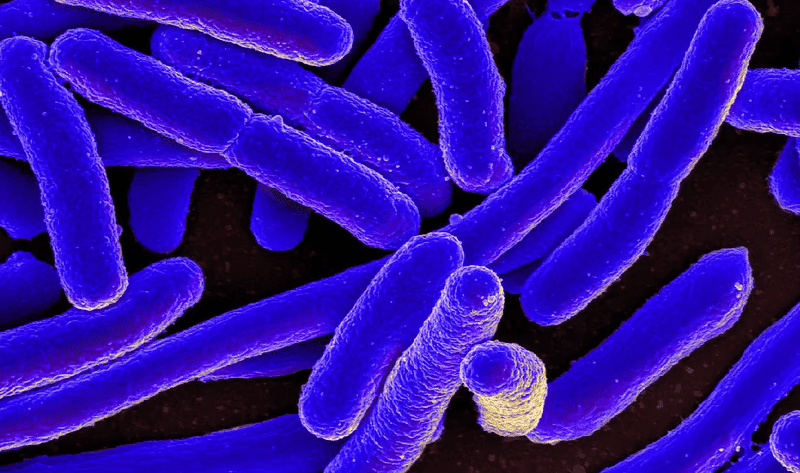Bacteria hold promise for cancer treatment in various ways. Some boast anti-cancer properties, while others could deliver therapeutic payloads to tumors. But the body’s immune response has been a major hurdle in preventing bacteria’s translation into the clinic.
Inspired by a natural mechanism to protect bacteria, bioengineers at Columbia University have developed a programmable “cloaking” system that could temporarily hide bacterial vehicles from the immune system.
The novel system allowed for the delivery of a much higher dose of bacteria that can be tolerated and improved anti-tumor efficacy in mouse models, the researchers showed in a study published in Nature Biotechnology. What’s more, upon local stimulation, bacteria based on the approach could also travel to—and inhibit—tumors at new sites.
“What’s really exciting about this work is that we are able to dynamically control the system,” Tal Danino, Ph.D., a co-corresponding author of the study, said in a statement. “We can regulate the time that bacteria survive in human blood and increase the maximum tolerable dose of bacteria.”
For the study, the researchers focused on capsular polysaccharide (CAP), a sugar polymer structure that coats bacterial surfaces and protects microbes from environmental conditions, including various immune factors in the human body. The team used a probiotic Escherichia coli Nissle 1917 strain as the bacteria vehicle because of its favorable clinical profiles and high viability in human blood.
Systemic delivery of therapeutic bacteria has been challenging because, at a low dose, they can be easily cleared by the immune system before achieving meaningful efficacy, while a persistent high-dose exposure can cause serious immune overreactions such as sepsis.
“With CAP, these bacteria can temporarily evade immune attack; without CAP, they lose their encapsulation protection and can be cleared out in the body. So we decided to try to build an effective on/off switch,” Tetsuhito Harimoto, the other co-corresponding author of the study, explained in a statement.
The researchers programmed gene circuits on E. coli that can sense and be activated by the small-molecule chemical reagent IPTG to increase CAP production. By adjusting the dose of IPTG, the researchers were able to modulate the rate by which the bacteria were cleared from blood. The new system, dubbed inducible CAP (iCAP), could increase the maximum tolerable dose of bacteria 10 times in mice compared with uninduced control, the team showed.
To test the approach’s efficacy, the researchers armed E. coli iCAP with a gene encoding the anti-tumor theta toxin. At the maximum tolerated dose, a systemic injection of the new therapy was better at suppressing tumor growth over E. coli without iCAP in mouse models of colorectal cancer and breast cancer.
E coli iCAP improved anti-tumor efficacy while the animals didn’t lose much weight, suggesting a good tolerability profile.
The team also tested injecting bacteria directly into a tumor. After intratumoral injection of bacteria, mice were given water containing IPTG. After three days, the researchers observed a marked increase in bacterial migration to other tumors compared with uninduced bacteria, and the therapy also shrank those additional tumors after IPTG. Compared with systemic delivery, this so-called in situ control of bacterial CAP may offer additional safeguards during treatment, the researchers suggested.
To date, bacillus Calmette-Guerin, or BCG, for non-muscle invasive bladder cancer, is the only FDA-approved bacteria-based cancer therapy, and it was introduced in the late 1970s. It works by triggering an immune response against cancer and directly killing cancer cells. Companies like MaaT Pharma and Microbiotica are working on oral microbiome therapies, hoping to tackle cancer by tweaking gut microbiome. Others like T3 Pharmaceuticals focus on using engineered bacteria to selectively deliver protein payloads to tumors.
Bacteria has several advantages over traditional cancer therapies. They better target tumor tissues and can be genetically programed to deliver other anti-cancer agents. The iCAP system holds promise to safely enhance the therapeutic capabilities of bacteria for cancer, the Columbia team argues.
The researchers are exploring the potential of other types of CAP and other bacterial surface structures using similar approaches. What’s more, the iCAP system could potentially be combined with other control platforms such as biosensors to further fine-tune the bacterial therapy, the team suggests.

